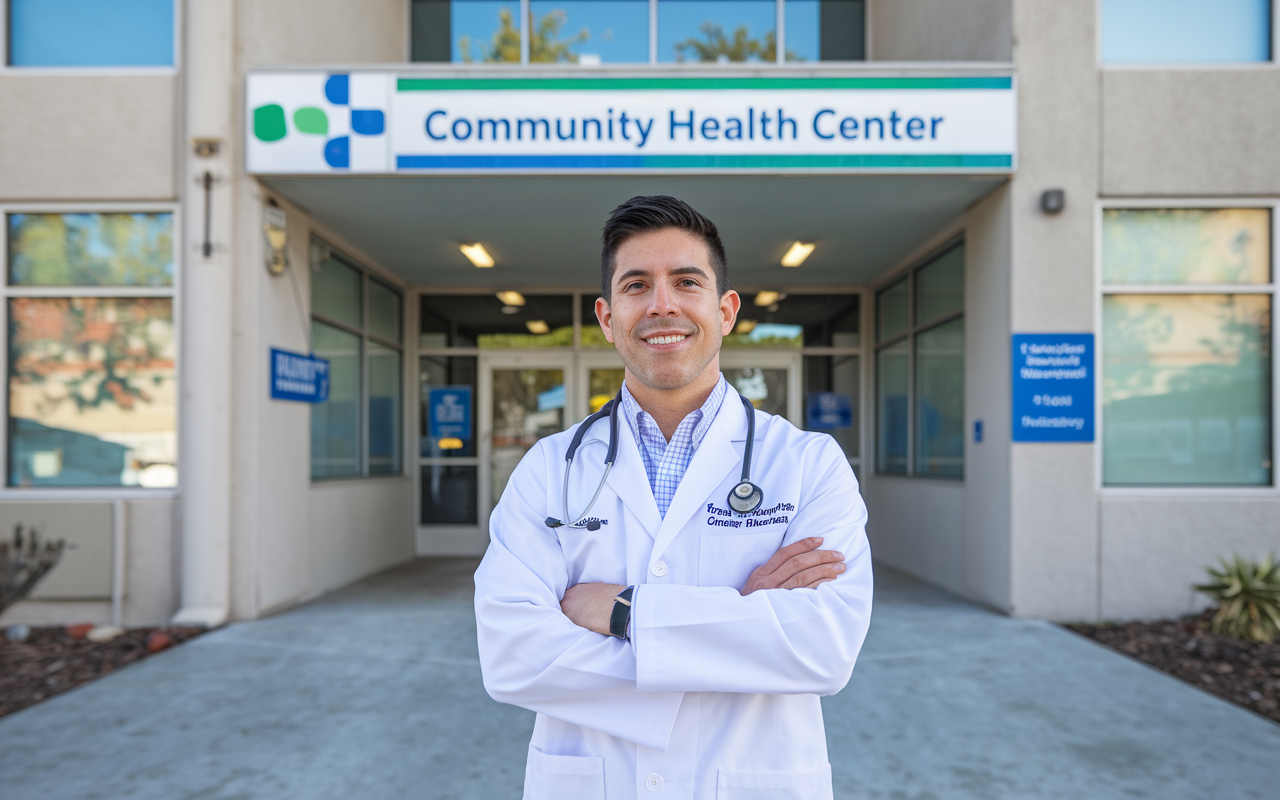Introduction
In an era where remote work is reshaping traditional career paths, public health is no exception. Public health remote jobs have emerged as a viable and appealing option for professionals eager to make a difference from anywhere in the world. Remote opportunities in public health range from epidemiology and health education to policy analysis and data management, offering diverse roles to suit a variety of skill sets. This article delves deeply into the landscape of public health remote jobs, exploring the types of positions available, the essential skills for success, the advantages and challenges of remote work in public health, and effective strategies for landing these roles. Whether you’re a recent graduate or a seasoned professional, understanding the dynamics of public health remote jobs can help you find a rewarding and impactful career.
The Growing Demand for Public Health Remote Jobs
The demand for public health remote jobs has risen substantially in recent years, driven in part by the COVID-19 pandemic, which forced many health organizations to adapt to digital operations. This shift demonstrated that public health work—traditionally thought to require on-site presence—could be effectively managed from remote locations. The ability to conduct research, provide health education, and support community health initiatives remotely has opened new avenues in public health careers. Public health remote jobs have become particularly valuable for global health efforts, allowing professionals to contribute to projects that impact communities worldwide without the need for relocation.

Types of Public Health Remote Jobs
The field of public health is broad, encompassing numerous specialties that can be adapted to remote work.
Epidemiologist
Remote epidemiologists focus on studying disease patterns, identifying potential outbreaks, and conducting data analysis on health trends. With access to large datasets and statistical tools, they can perform much of their research remotely, supporting health organizations in making data-driven decisions for public health interventions.
Health Policy Analyst
Health policy analysts work on evaluating, developing, and recommending policies to improve public health. In a remote setting, they conduct extensive research, review legislation, and collaborate with stakeholders to promote effective health policies.
Public Health Educator
Public health educators design and deliver programs to promote health and wellness in communities. Through online platforms, they can reach audiences remotely, creating digital content, online courses, and virtual health campaigns to increase public awareness of health-related topics.
Biostatistician
Biostatisticians apply statistical analysis to health data, interpreting findings that can inform public health decisions. This role is highly compatible with remote work as it relies on software tools and data analysis, making it suitable for professionals working from a distance.
Public Health Consultant
Consultants offer expertise to organizations seeking to improve their public health programs. Remote public health consultants may work with non-profits, government agencies, or private companies, advising on program design, evaluation, and health policy.
Community Health Coordinator
Community health coordinators manage public health initiatives aimed at improving health outcomes in specific communities. Remote coordinators oversee programs, communicate with local health workers, and ensure that community health efforts are aligned with organizational goals.
Environmental Health Scientist
Environmental health scientists study the impact of environmental factors on health, often working with remote monitoring tools to analyze air and water quality, soil conditions, and pollution levels. They can provide critical insights into environmental health risks without being on-site.
These positions highlight the range of opportunities available in public health remote jobs, each offering the chance to make a meaningful impact while working from anywhere.

Essential Skills for Success in Public Health Remote Jobs
Public health remote jobs require a unique blend of technical and interpersonal skills, along with the discipline needed for remote work.
Data Analysis
Many roles in public health, particularly those related to epidemiology and biostatistics, require a strong command of data analysis. Familiarity with statistical software like SAS, SPSS, or R is often a prerequisite. Data analysis skills help professionals interpret health trends, assess health risks, and make informed recommendations.
Communication
Effective communication is crucial in public health, where conveying complex information to a diverse audience is often necessary. For remote workers, communication skills are doubly important, as interactions with colleagues, stakeholders, and community members occur primarily online.
Project Management
Remote public health jobs often involve overseeing multiple projects simultaneously. Project management skills ensure that professionals can organize tasks, set deadlines, and coordinate resources effectively. Proficiency with project management tools like Asana, Trello, or Microsoft Project can be particularly helpful.
Digital Proficiency
A high level of comfort with digital tools and platforms is essential for remote public health roles. It includes not only proficiency with office software but also experience with data management systems, video conferencing tools, and collaboration software that enables seamless remote teamwork.
Cultural Competency
Public health is inherently focused on serving diverse communities. Remote professionals must be culturally competent, understanding and respecting the backgrounds of the populations they serve. This skill ensures that public health initiatives are sensitive and appropriate to the needs of different groups.
Possessing these skills can make candidates highly competitive for remote public health jobs, equipping them to work effectively from a distance while supporting impactful health initiatives.
Advantages of Public Health Remote Jobs
Public health remote jobs come with a unique set of benefits that make them appealing to many professionals:
Flexibility
Remote work offers flexibility in scheduling, allowing professionals to balance their work with other commitments. It is especially beneficial for individuals with personal or family obligations, as they can manage their time more freely.
Access to Global Opportunities
Public health remote jobs open doors to roles with organizations around the world. It allows professionals to work on international health projects, contributing to initiatives that span multiple countries and communities.
Cost Savings
Remote working can reduce commuting expenses, minimize the need for work attire, and lower daily costs such as meals and transportation. These savings add up over time, making remote work financially appealing.
Expanded Career Options
Remote roles enable public health professionals to apply for jobs they might not have considered due to geographic limitations. Whether in rural areas or small towns, individuals can access roles in prestigious organizations that are headquartered elsewhere.
These benefits demonstrate why public health remote jobs are becoming a popular choice for individuals seeking a meaningful career with the added advantages of flexibility and global reach.

Challenges of Public Health Remote Jobs
While public health remote jobs offer numerous advantages, they also come with challenges. Understanding these challenges can help professionals prepare for and navigate the realities of remote work:
Isolation
Remote work can lead to feelings of isolation, as professionals may miss the camaraderie of an in-person work environment. It’s important to maintain regular communication with colleagues through video calls, team meetings, and informal check-ins.
Work-Life Balance
Without clear boundaries between home and work, remote professionals may struggle to maintain a healthy work-life balance. Setting dedicated work hours and a separate workspace can help ensure that work doesn’t spill over into personal time.
Communication Barriers
Virtual communication can sometimes lead to misunderstandings, particularly when complex topics are discussed via email or messaging. Developing strong written communication skills and using video calls when possible can help prevent miscommunication.
Access to Resources
Some tasks in public health require access to resources or facilities that are difficult to replicate in a home environment, such as laboratory equipment. Professionals may need to find creative solutions or work closely with on-site teams to complete their tasks effectively.
By acknowledging and addressing these challenges, professionals in public health remote jobs can develop strategies to work while managing the unique aspects of remote work.
Finding Public Health Remote Jobs
For those interested in public health remote jobs, finding suitable positions requires a proactive approach. Here are some effective strategies:
Utilize Job Boards
Popular job boards like Indeed, Glassdoor, and LinkedIn offer remote job listings. Use filters to narrow searches to “remote” positions and enter keywords related to public health to find relevant roles.
Explore Specialized Sites
Public health-specific job sites like PublicHealthJobs.org and Idealist.org often list remote opportunities. These platforms cater to the public health field, making it easier to find specialized positions.
Networking
Networking remains invaluable for remote job searching. Connecting with professionals in the public health field, attending virtual conferences, and joining industry forums can lead to job referrals and insights into remote openings.
Freelancing Platforms
For consulting roles, freelancing sites like Upwork and Freelancer offer opportunities to work with health organizations on a project basis. These platforms are a great way to gain experience in remote public health work.
Check Company Websites
Many public health organizations post job openings directly on their websites. Companies like the CDC, WHO, and non-profit organizations often list remote positions, providing a direct way to apply.
By using these resources, job seekers can find a range of public health remote jobs that align with their experience and career aspirations.
Top Employers for Public Health Remote Jobs
Several organizations consistently offer public health remote jobs, including:
Centers for Disease Control and Prevention (CDC)
The CDC hires remote public health professionals in areas such as epidemiology, health education, and policy analysis. As one of the top public health institutions, the CDC provides valuable career opportunities for those interested in remote work.
World Health Organization (WHO)
The WHO often lists remote positions focused on global health monitoring, community health programs, and research. Working remotely for the WHO allows professionals to contribute to health initiatives on an international scale.
Non-Profit Organizations
Non-profits such as the American Public Health Association (APHA) and Doctors Without Borders regularly hire remote workers for program management, health education, and community outreach roles.
Government Agencies
Local and state health departments offer remote public health jobs in fields such as policy development, health analysis, and public education. These positions allow professionals to contribute to public health at a local level from a remote setting.
Academic Institutions
Universities often employ remote public health professionals for research and teaching roles. Academic institutions are a great place to find research-focused positions that can be managed remotely.
These organizations are leaders in public health, providing career opportunities for professionals interested in working remotely.
Conclusion
Public health remote jobs offer an exciting and meaningful way to build a career that makes a positive impact. From epidemiology to health education and policy analysis, remote roles provide flexibility, access to global initiatives, and the opportunity to apply specialized skills in diverse settings. By understanding the types of positions available, cultivating essential skills, and following effective job search strategies, public health professionals can find rewarding remote work that aligns with their passion for making a difference. Whether you’re new to the field or looking to transition into a remote role, public health remote jobs provide a path to a fulfilling and impactful career.



